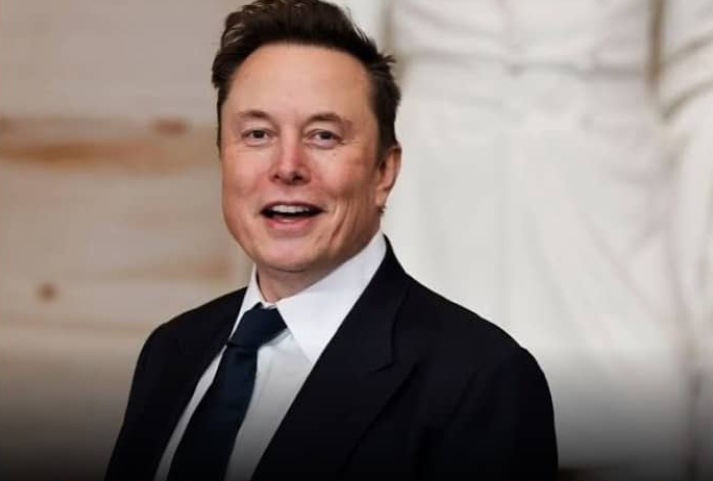
Elon Musk Declares Political War: Launches 'America Party' After Explosive Split With Trump

In a political development that has rocked the American establishment, billionaire tech mogul Elon Musk has officially launched a new political force: the America Party. The move comes after a highly publicized and bitter fallout with former U.S. President Donald Trump, marking the end of what had once been one of the Republican Party’s most powerful alliances.
Musk, known globally for his ventures in space, electric cars, and AI, took to his social media platform X to make the announcement, posting a terse yet defiant message: “When it comes to bankrupting our country with waste & graft, we live in a one-party system, not a democracy. Today, the America Party is formed to give you back your freedom.” With that single post, the world’s richest man crossed a political Rubicon, staking his personal brand and billions on a bold new direction that could reshape U.S. politics.
The final break between Musk and Trump was triggered by a controversial domestic policy bill passed late last week, which Musk vehemently opposed. While the details of the bill remain sealed behind political fog, insiders say it includes sweeping budget expansions, extensive new subsidies, and discretionary spending estimated to add trillions to the national debt. Musk publicly warned the bill represented a form of “debt sl+very,” a sharp rebuke that reportedly infuriated Trump and his inner circle.
Musk had been a major donor and informal adviser to Trump during his second presidential run and was instrumental in shaping the “efficiency-first” vision that dominated early Republican economic messaging. But behind closed doors, sources reveal that Musk grew increasingly frustrated with what he saw as fiscal hypocrisy and rampant corruption in Washington. That frustration boiled over when Trump not only championed the spending bill but also mocked critics who called for budget restraint.
The billionaire’s open criticism set off a political firestorm. Trump responded with characteristic fury, blasting Musk in a rally speech, saying: “The so-called Efficiency Czar turned into a monster that may go back and eat Elon. That’s fine. We’ll deal with him.” Trump also hinted at re-evaluating federal contracts with Musk’s companies, which include SpaceX, Tesla, and Neuralink, a move that could cost Musk billions. Legal experts have already begun debating the constitutionality of such retaliation, calling it a dangerous blend of personal vendetta and presidential overreach.
In typical Musk fashion, however, he did not back down. Instead, he doubled down. The America Party, though still in its infancy, has already launched a website placeholder and begun hiring key staff from both Democratic and Republican circles. Musk says the party’s central mission is “to return fiscal discipline and individual freedom to the American political system.” While the full platform is yet to be revealed, early statements suggest a blend of libertarian economic policies, anti-corruption reforms, and technological modernization of government services.
Political analysts are divided over what this means. Some view it as a vanity project destined to go the way of past third-party efforts—from Ross Perot’s 1992 campaign to Andrew Yang’s Forward Party. Others see Musk’s unparalleled resources and global reach as game-changing assets in a political system increasingly dominated by spectacle and social media influence. Already, several sitting lawmakers and former cabinet members are rumored to be in quiet talks with Musk’s team about defecting from their respective parties.
The America Party is reportedly planning to contest a limited number of congressional seats in the 2026 midterm elections as a test run. Insiders say Musk’s strategy is not to field a full slate of candidates immediately but to target winnable districts where dissatisfaction with both major parties is high. This surgical approach may give the party a better chance of gaining a foothold in Washington. However, the structural obstacles remain formidable: state ballot access laws, campaign finance regulations, and entrenched party loyalties are all formidable barriers to success.
Still, the timing of Musk’s move is notable. Public confidence in both the Democratic and Republican parties is at historic lows, with voters increasingly disillusioned by what they see as performative politics and backroom deals. Recent polls suggest that as many as 62% of Americans would consider supporting a viable third-party candidate, especially one with clear policy goals and a proven leadership record. Musk, with his track record of disrupting entire industries, appears to be betting that the same formula can work in politics.
His critics argue otherwise. “Elon Musk running a political party is like handing the nuclear codes to a mad scientist,” said one prominent liberal commentator. Others accuse Musk of trying to shape government policy to favor his business interests, especially in areas like space defense, electric vehicle subsidies, and AI regulation. Musk, meanwhile, insists that his goal is to break what he calls “the two-party cartel” and restore the power of government to the people.
What remains unclear is how far Musk is willing to go. While he has not announced any plans to run for office himself, speculation is already rife that he could be eyeing a future presidential bid—perhaps not in 2028, but sometime beyond. The U.S. Constitution currently bars naturalized citizens from running for president, but Musk’s defenders say it’s only a matter of time before that clause comes under renewed scrutiny in a world where nationality and identity are more fluid than ever.
For now, Musk says his focus is on building a “policy-first, personality-last” movement that can survive beyond his own involvement. Whether the America Party becomes a serious political force or a footnote in the annals of American political history, one thing is clear: the era of quiet billionaire influence behind closed doors is over. Elon Musk has entered the arena, gloves off, ready to fight.
And in a nation deeply divided and looking for alternatives, that may be enough to turn the tides.


